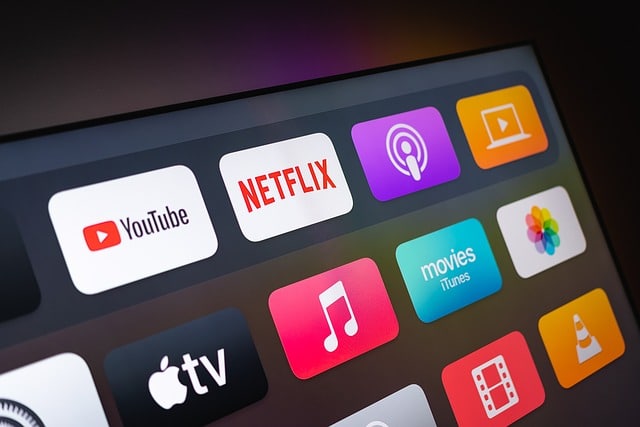
Streaming Services
- Netflix: A popular streaming service that offers a wide range of TV shows and movies. Prices start at £5.99 per month for a basic subscription, £8.99 per month for a standard subscription, and £11.99 per month for a premium subscription.
- Amazon Prime Video: This is included with an Amazon Prime membership, which costs £7.99 per month or £79 per year. It offers a wide range of TV shows, movies, and original content.
- Disney+: This service offers a wide range of content from Disney, Marvel, Star Wars, and more. Prices start at £5.99 per month or £59.99 per year.
- BBC iPlayer: This service provides live streaming of BBC channels and catch-up content. It’s free, but you need to have a TV license.
- Now TV: This service offers a wide range of TV shows and movies, as well as live sports. Prices start at £8.99 per month for the Entertainment Pass, £11 per month for the Sky Cinema Pass, and £33 per month for the Sports Pass.
- Apple TV+: This service offers a selection of original TV shows and movies. Prices start at £4.99 per month
- Hulu: This service offers a wide range of TV shows and movies, as well as live TV. Prices start at £5.99 per month.
- Hayu: This service focuses on reality TV shows and offers a wide range of popular shows. Prices start at £4.99 per month.
- BritBox: This service offers a wide range of British TV shows and movies. Prices start at £5.99 per month.
- CuriosityStream: This service offers a wide range of documentaries and educational content. Prices start at £2.99 per month
- Mubi: A streaming service that curates a selection of world cinema, cult, classic, and independent films. Prices start at £9.99 per month
In addition to these streaming services, there are also several niche streaming options available in the UK, such as BFI Player, Horror Bites, Nollywood, Kanopy, and Acorn TV, each of them offers a different type of content, it’s worth checking them out as well.
Remember these prices are subject to change! Different plans may be available depending on the service. Additionally, many streaming services offer free trials, so you can test out the platform before committing to a subscription.
Devices that can be used for streaming
Streaming can be done on a variety of devices, not just limited to traditional streaming devices like a Smart TV or streaming media players like the Roku or Amazon Fire TV Stick. You can also stream content on your gaming console, like the Xbox or PlayStation, or even on a high-end Blu-ray player. Streaming can also be done through a web browser on a desktop or laptop computer, or even on a mobile device like a smartphone or tablet. For those who prefer a hands-free experience, streaming services can also be accessed through smart speakers like Amazon Echo or Google Home. It’s also possible now to stream on your smartwatches like Apple Watch or Samsung Galaxy Watch. So, in short, streaming can be done on a wide range of devices, giving you the flexibility to enjoy your favorite content wherever and whenever you want.
Best download speed for streaming
The best download speed for streaming depends on the quality of the video you want to watch and the number of devices that will be connected to your network at the same time.
For standard definition video (SD), a download speed of at least 3 Mbps is recommended. For high-definition video (HD), a download speed of at least 5 Mbps is recommended. For 4K ultra-high definition video, a download speed of at least 25 Mbps is recommended.
It’s also important to note that these are just minimum recommendations, and actual download speeds may vary depending on your location, network provider, and other factors. Additionally, if you’re streaming on multiple devices simultaneously or have other internet-connected devices in use (such as gaming or downloading large files), you may need a higher download speed to ensure a smooth streaming experience.
However, it’s also important to note that streaming services like Netflix, Disney+, and Prime Video adjust the quality of the streaming video according to the available bandwidth, so if your internet connection speed is not sufficient, it will automatically adjust the quality of the video, in order to avoid buffering, interruptions, and other streaming issues.

How interesting, I personally use Disney+ myself.